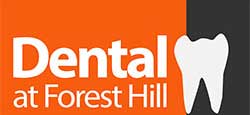Discover Affordable Options at Dental at Forest
As we age, maintaining dental health becomes increasingly important. Seniors face a unique set of challenges when it comes to their oral health, which can significantly impact their overall well-being. Understanding these common dental issues and knowing how to prevent them is crucial for ensuring a healthy and comfortable life in the later years. In this article, we delve into the most prevalent dental problems among seniors and offer comprehensive strategies for prevention.
As we age, dental health is vital for overall well-being. Seniors face unique oral health challenges. Learn about common issues and prevention tips to ensure a healthy, comfortable life in later years.
Tooth Decay and Cavities
Tooth decay and cavities are widespread among seniors. This is often due to a combination of factors, including dry mouth, a higher consumption of sugary foods, and the natural wear and tear on teeth over the years. Dry mouth, or xerostomia, can be a side effect of many medications commonly prescribed to older adults, reducing saliva flow and making teeth more susceptible to decay.
Prevention Tips:
Maintain Regular Dental Visits: Ensure biannual dental check-ups to catch any early signs of decay.
Practice Good Oral Hygiene: Brush twice daily with fluoride toothpaste and floss regularly.
Use Fluoride Treatments: Ask your dentist about fluoride treatments or mouth rinses that can help strengthen tooth enamel.
Stay Hydrated: Drink plenty of water and chew sugar-free gum to stimulate saliva production.
Gum Disease (Periodontitis)
Gum disease is another common issue, often more severe in older adults. It begins with gingivitis, characterized by red, swollen gums that bleed easily. If left untreated, it can progress to periodontitis, leading to tooth loss and other serious health problems, including heart disease and diabetes complications.
Prevention Tips:
Adopt a Rigorous Oral Care Routine: Brush and floss daily to remove plaque.
Regular Dental Cleanings: Professional cleanings every six months can help manage and prevent gum disease.
Quit Smoking: Smoking is a significant risk factor for gum disease.
Healthy Diet: Eat a balanced diet rich in vitamins and minerals to support gum health.
Tooth Loss
Tooth loss can be a result of advanced gum disease, severe tooth decay, or trauma. It can significantly impact an individual’s ability to eat, speak, and maintain self-confidence. Dentures, bridges, and implants are common solutions, but preventing tooth loss in the first place is the best approach.
Prevention Tips:
Early Intervention: Address dental issues promptly to prevent escalation.
Maintain Oral Hygiene: Consistent brushing and flossing are key.
Protect Your Teeth: Wear mouthguards during physical activities to prevent injury.
Avoid Harmful Habits: Don’t use your teeth to open packages or bite down on hard objects.
Dry Mouth (Xerostomia)
Dry mouth is not just uncomfortable; it also increases the risk of tooth decay and gum disease. It is often caused by medications, certain health conditions, and decreased saliva production associated with aging.
Prevention Tips:
Stay Hydrated: Drink water frequently throughout the day.
Avoid Caffeine and Alcohol: These can dry out your mouth.
Use a Humidifier: Keep the air moist, especially at night.
Saliva Substitutes: Over-the-counter saliva substitutes and oral moisturizers can provide relief.
Oral Cancer
The risk of oral cancer increases with age. Regular dental check-ups are crucial for early detection, which significantly improves treatment outcomes. Symptoms can include sores that don’t heal, lumps, or unusual patches in the mouth.
Prevention Tips:
Regular Screenings: Ensure your dentist performs an oral cancer screening at each visit.
Avoid Tobacco: Refrain from all tobacco products, as they are the leading cause of oral cancer.
Limit Alcohol: Excessive alcohol consumption increases the risk of oral cancer.
Healthy Diet: A diet rich in fruits and vegetables can help lower cancer risk.
Root Decay
Root decay occurs when the roots of the teeth, which are not protected by enamel, become exposed due to receding gums and are susceptible to decay. This is a common problem among older adults and can lead to significant discomfort and tooth loss if untreated.
Prevention Tips:
Regular Dental Check-ups: Frequent visits can help monitor and treat early signs of root decay.
Use Fluoride: Fluoride toothpaste and treatments can help protect exposed roots.
Gentle Brushing: Use a soft-bristled toothbrush to avoid aggravating receding gums.
Maintain Oral Hygiene: Floss carefully around the gum line to remove plaque buildup.
Dentures and Dental Appliances
Many seniors rely on dentures and dental appliances to replace missing teeth and improve their quality of life. However, these devices require proper care to prevent issues such as infections, sores, and discomfort.
Prevention Tips:
Regular Cleaning: Clean dentures daily with a non-abrasive cleaner.
Remove Overnight: Take out dentures while sleeping to give your gums a rest.
Check for Fit: Ensure that dentures fit properly to avoid sores and irritation.
Regular Dental Visits: Have your dentures and mouth checked regularly by a dentist.
Maintaining oral health is crucial for seniors
Maintaining oral health is crucial for seniors to ensure a good quality of life. By understanding the common dental issues faced by older adults and implementing preventive measures, it’s possible to enjoy a healthy and pain-free mouth well into the golden years. Regular dental check-ups, good oral hygiene practices, a healthy diet, and avoiding harmful habits are the cornerstones of preventing dental problems in seniors.


